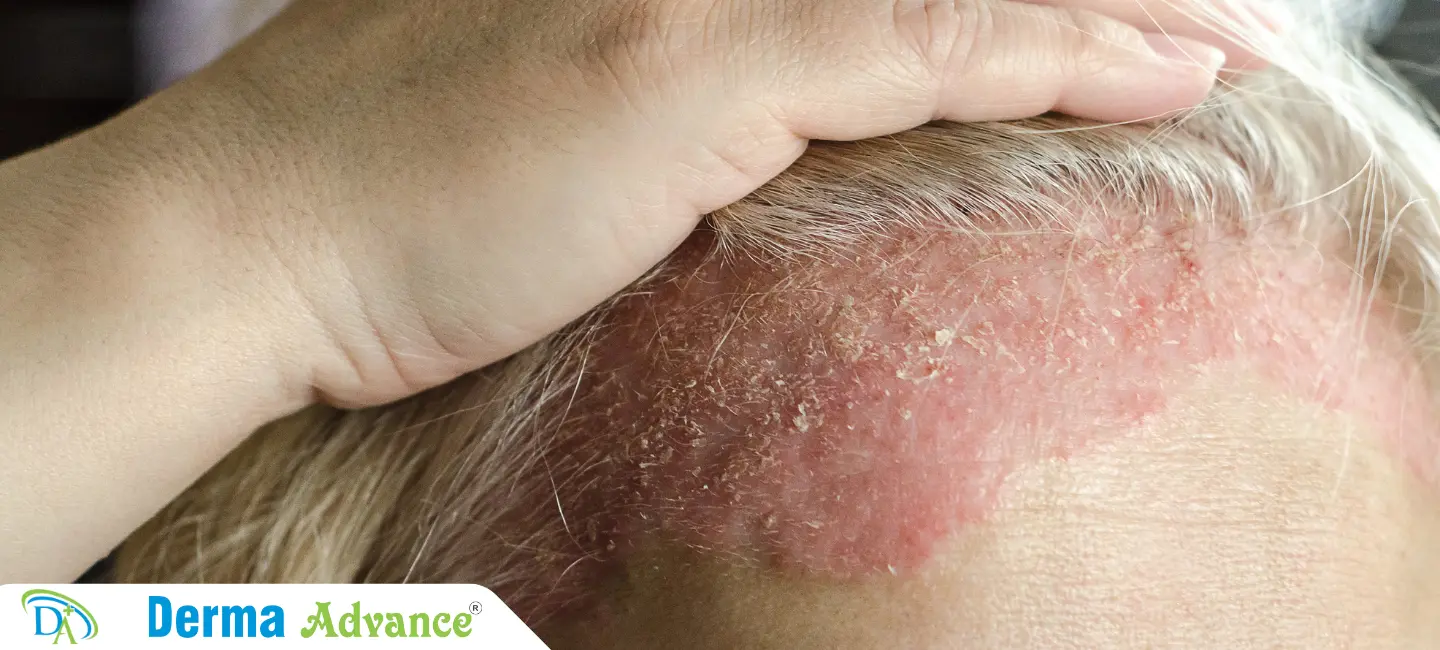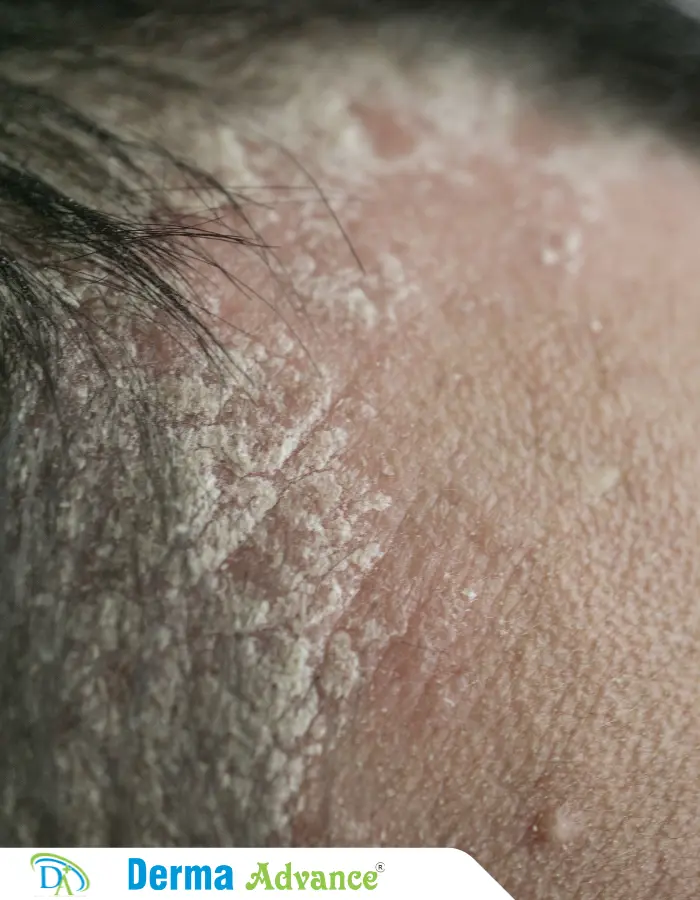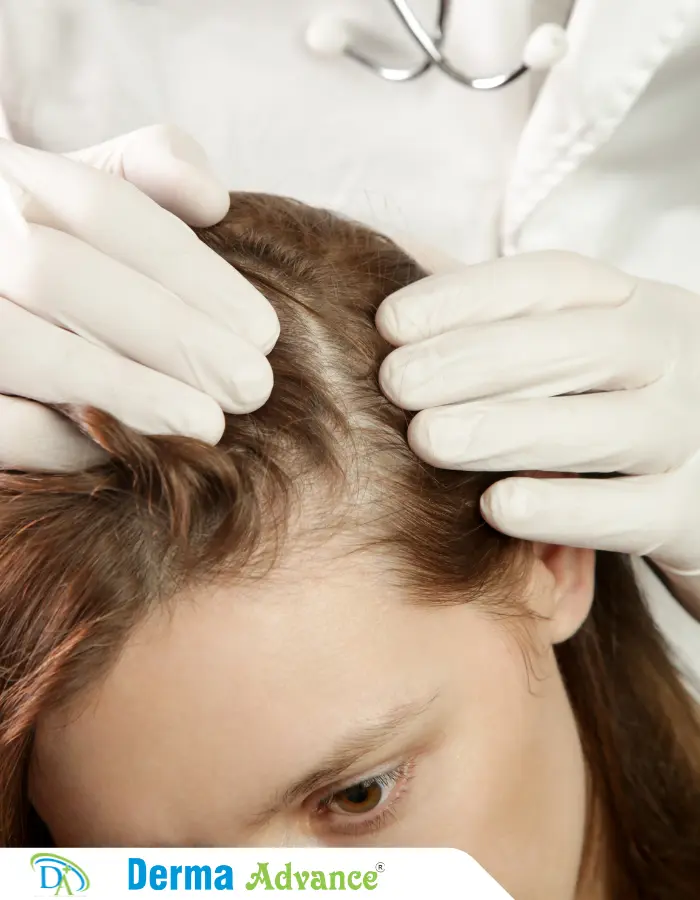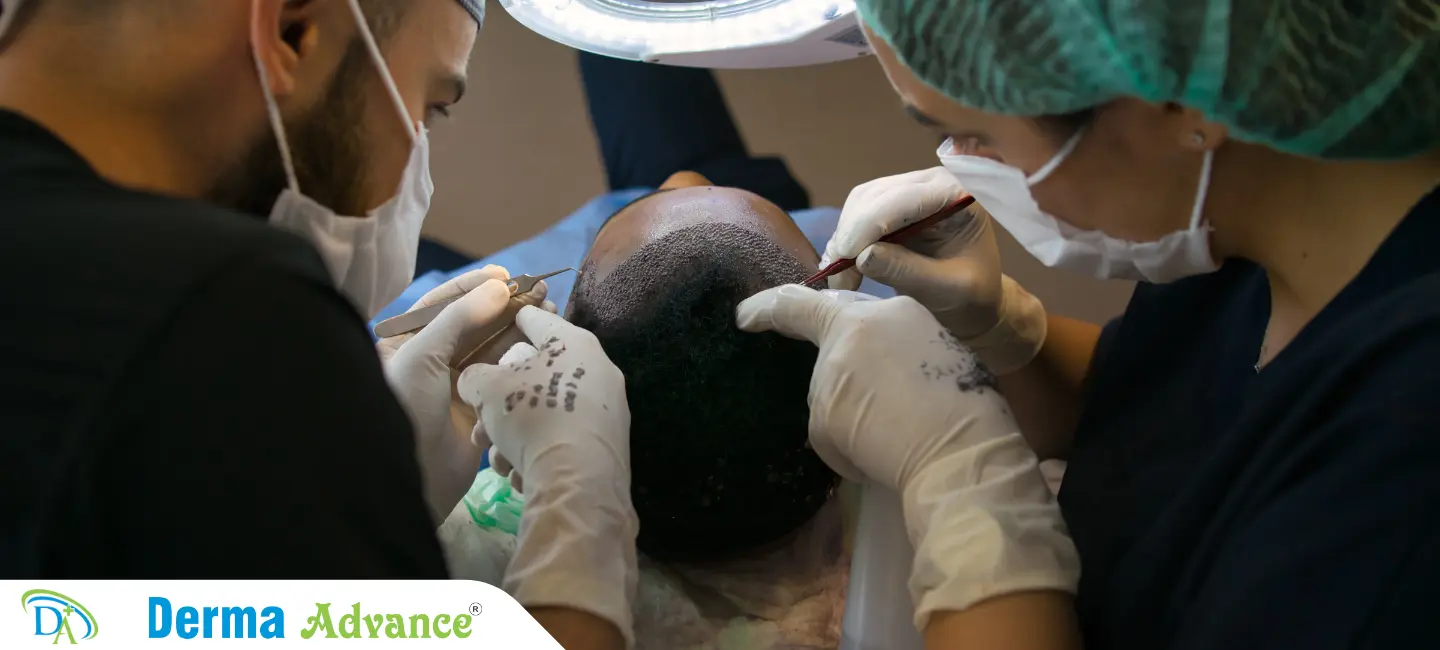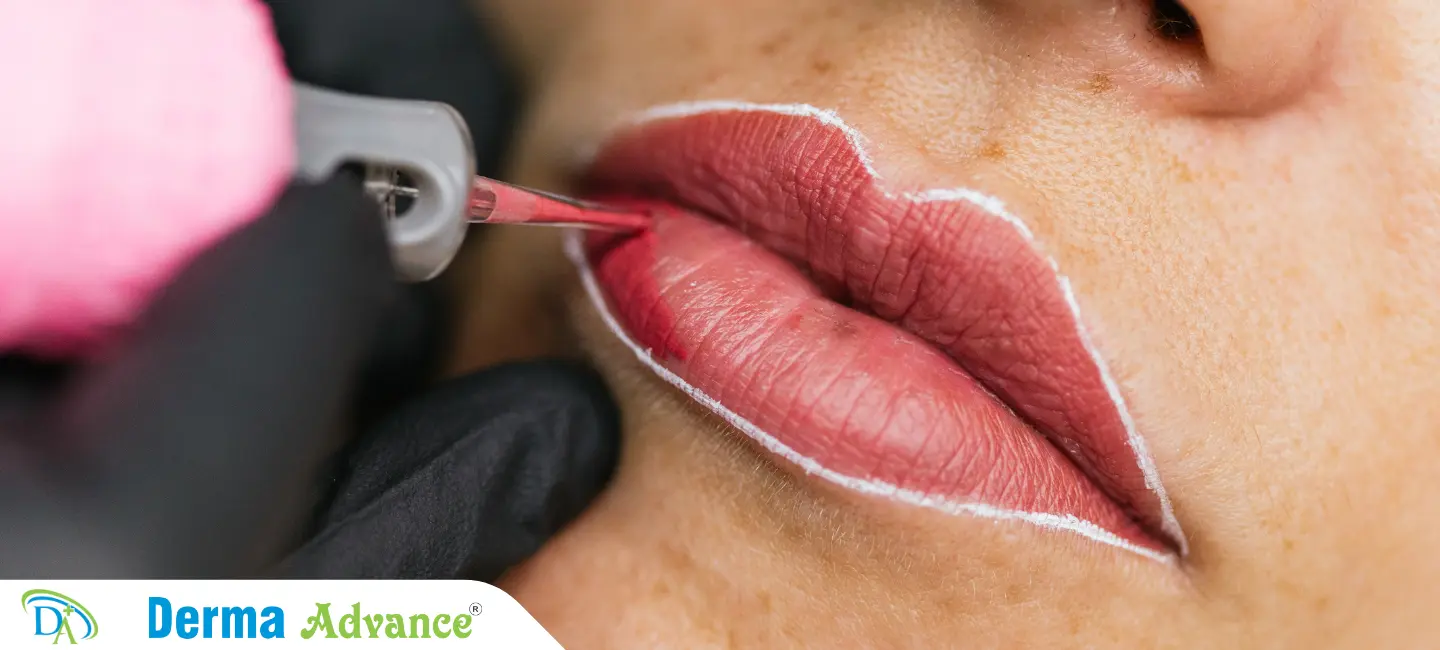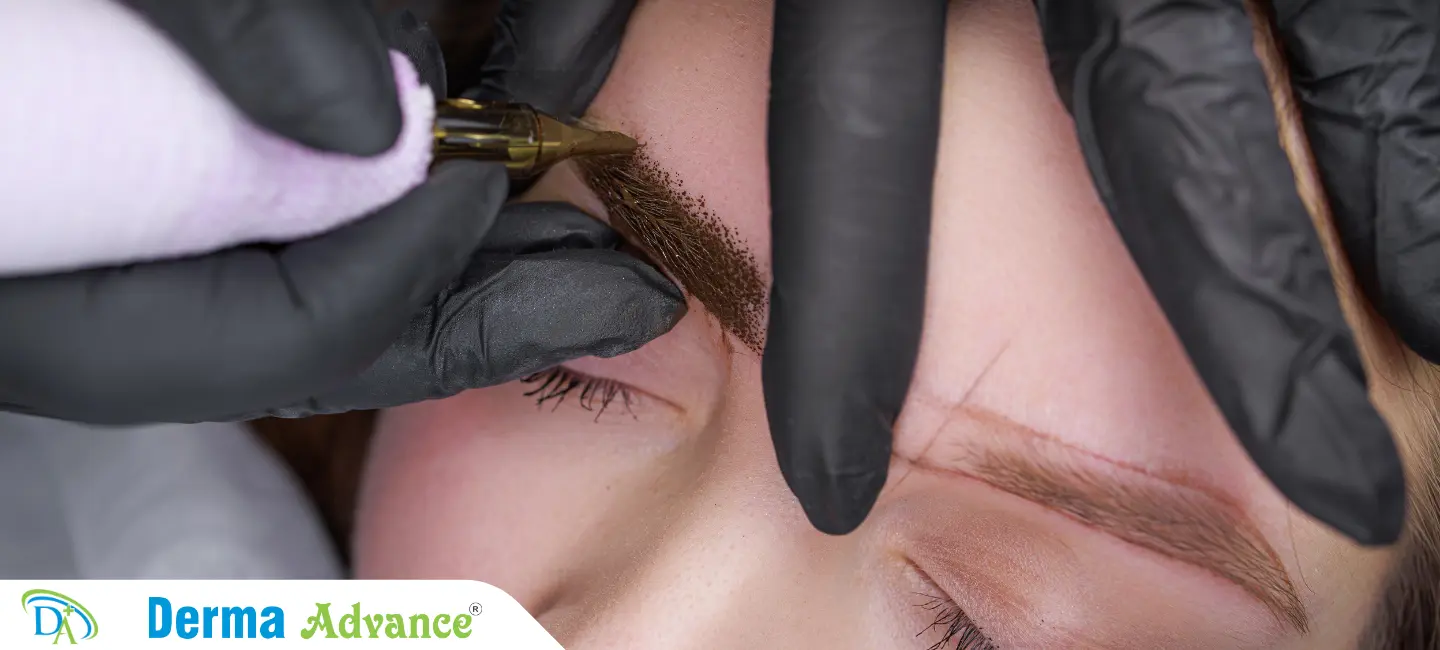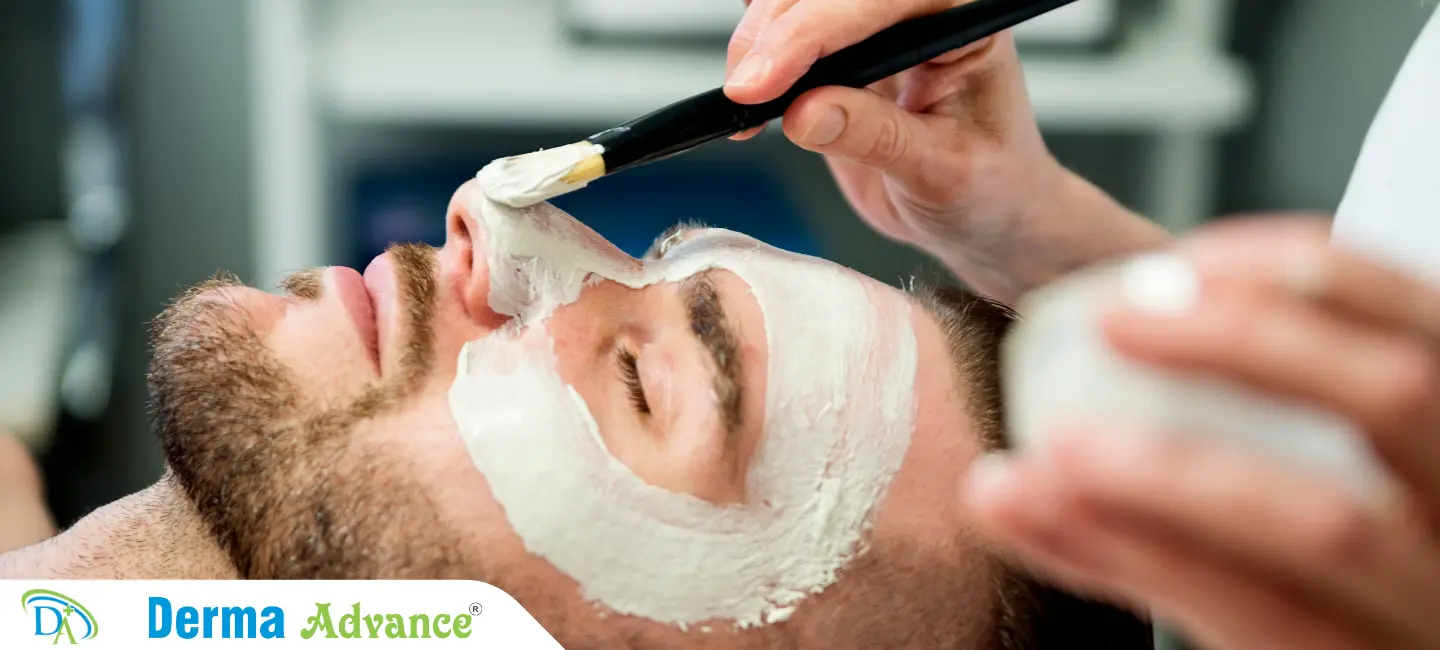What is Scalp Psoriasis?
Scalp psoriasis is a chronic autoimmune condition causing red, scaly patches on the scalp, often accompanied by itching and discomfort.
Scalp psoriasis results from immune system dysfunction, leading to rapid skin cell turnover and the formation of thick, silvery scales on the scalp. Itching and inflammation are common, affecting hair growth and scalp health.
Treatment focuses on alleviating symptoms and managing flare-ups through topical treatments, phototherapy, and lifestyle adjustments. Regular scalp care routines and dermatological consultations are essential for effective scalp psoriasis management.
Immense Care
We aim to provide immense care tailored to manage and treat your health condition. Be assured, you are in safe hands!
Modern Techniques
We provide modern treatments to ensure you get the quickest and most effective solution to your health conditions!
Symptoms of Scalp Psoriasis
What are the Symptoms of Scalp Psoriasis?
Scalp psoriasis presents as red, raised patches covered with silvery scales on the scalp, extending to the hairline, forehead, or neck. Itching, burning sensations, and scalp tenderness accompany flare-ups, impacting daily comfort and hair care routines.
Prolonged inflammation may lead to hair thinning or temporary hair loss in affected areas, requiring scalp care strategies to minimize damage and support healthy hair growth. Psychological distress from visible scalp psoriasis symptoms may affect self-esteem and social interactions.
Comprehensive management includes topical treatments to reduce scaling and inflammation, phototherapy for moderate to severe cases, and scalp moisturizers to alleviate dryness and discomfort associated with scalp psoriasis.
Red, Scaly Patches
Raised, inflamed patches covered with thick, silvery scales on the scalp, characteristic of scalp psoriasis and causing discomfort or itching.
Itching and Burning Sensations
Persistent itching, burning, or stinging sensations on the scalp, often accompanying psoriatic flare-ups and affecting daily comfort.
Hair Thinning or Loss
Temporary hair thinning or localized hair loss in areas affected by scalp psoriasis, requiring scalp care interventions to support hair regrowth and scalp health.
Scalp Tenderness
Sensitivity or tenderness of the scalp, exacerbated during psoriasis flare-ups, affecting scalp health and daily activities.
Psychological Impact
Emotional distress or self-consciousness from visible scalp psoriasis symptoms, influencing self-esteem and social interactions.
Scalp Inflammation
Persistent scalp inflammation, characterized by redness, swelling, or discomfort, requiring targeted treatments to reduce psoriatic symptoms and promote scalp health.
Diagnosis of Scalp Psoriasis
1
Scalp Evaluation
Visual inspection of scalp psoriasis symptoms, including red, scaly patches or silvery scales, aiding in accurate diagnosis and treatment planning.
2
Medical History Review
Comprehensive review of patient medical history, including prior scalp conditions or autoimmune disorders, to identify predisposing factors and tailor scalp psoriasis management strategies.
3
Symptom Assessment
Evaluating itching, burning sensations, or scalp tenderness associated with scalp psoriasis, guiding diagnostic criteria application and treatment recommendations.
4
Differential Diagnosis Considerations
Differentiating scalp psoriasis from other scalp conditions, such as seborrheic dermatitis or fungal infections, based on distinct clinical features and diagnostic criteria.
5
Scalp Biopsy (if applicable)
Invasive procedure to obtain scalp tissue samples for laboratory analysis, confirming scalp psoriasis diagnosis and ruling out alternative dermatological conditions.
6
Scalp Imaging Techniques
Non-invasive imaging methods, such as dermoscopy or reflectance confocal microscopy, aiding in scalp psoriasis diagnosis by visualizing skin lesions and scalp inflammation patterns.
Book Your Appointment
Find Solution to Scalp Psoriasis Now!
Meet Our Expert Scalp Psoriasis Specialists


Treatment of Scalp Psoriasis
How is Scalp Psoriasis treated?
Scalp psoriasis treatment aims to reduce scaling, alleviate itching, and manage inflammation through topical medications, corticosteroids, and vitamin D analogs. Regular use of medicated shampoos and scalp moisturizers helps maintain scalp health and prevent flare-ups.
Phototherapy sessions using UVB light may be recommended for moderate to severe scalp psoriasis cases, targeting affected areas and promoting skin cell turnover normalization. Biologic therapies provide systemic relief by targeting immune system dysfunction underlying psoriatic symptoms.
Integrative approaches include lifestyle modifications, stress management techniques, and dietary adjustments to support overall health and reduce psoriasis triggers, enhancing treatment effectiveness and long-term scalp management.
Topical Medications
Application of corticosteroids, vitamin D analogs, or coal tar-based ointments to reduce scaling, itching, and inflammation associated with scalp psoriasis.
Medicated Shampoos
Regular use of coal tar or salicylic acid-based shampoos to manage scalp psoriasis symptoms, cleanse the scalp, and alleviate scaling or irritation.
Phototherapy (UVB)
Controlled exposure to UVB light to target scalp psoriasis patches, promoting skin cell turnover and reducing inflammation in affected scalp areas.
Biologic Therapies
Injectable medications targeting immune system components involved in scalp psoriasis pathogenesis, providing systemic relief and long-term management of psoriatic symptoms.
Scalp Moisturizers
Application of hydrating scalp creams or oils to alleviate dryness, soothe scalp irritation, and support overall scalp health in individuals with scalp psoriasis.
Lifestyle Modifications
Incorporation of stress management techniques, dietary adjustments, and regular scalp care routines to minimize psoriasis triggers and enhance treatment outcomes.
Causes of Scalp Psoriasis
1
Autoimmune Dysfunction
Immune system abnormalities activating T cells and cytokines, accelerating skin cell production and causing scalp psoriasis symptoms.
2
Genetic Predisposition
Family history of psoriasis or autoimmune disorders increasing susceptibility to scalp psoriasis development, influenced by inherited genetic factors.
3
Environmental Triggers
External factors like stress, infections, or seasonal changes exacerbating scalp psoriasis symptoms by triggering immune system responses or skin inflammation.
4
Lifestyle Factors
Poor diet, smoking habits, or inadequate scalp care routines contributing to scalp psoriasis onset or exacerbation in susceptible individuals.
5
Immune System Activation
Activation of immune system components, including T lymphocytes and inflammatory cytokines, perpetuating scalp psoriasis inflammation and symptom severity.
6
Scalp Microbiome Influence
Imbalance in scalp microbiota or dysbiosis affecting immune responses and skin barrier function, potentially exacerbating scalp psoriasis symptoms.
How to Prevent Scalp Psoriasis?
Scalp psoriasis is a chronic autoimmune condition causing red, scaly patches on the scalp, often accompanied by itching and discomfort.
Proactive scalp care includes using gentle, non-irritating hair products, avoiding scalp trauma or harsh chemicals, and practicing stress reduction techniques to minimize psoriasis triggers.
Early dermatological intervention assists in identifying scalp psoriasis symptoms promptly, allowing for timely treatment initiation and effective scalp management strategies.

